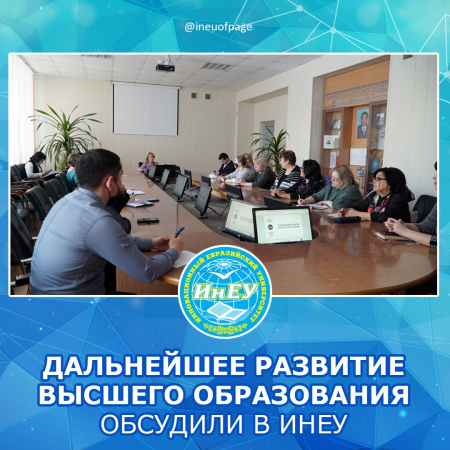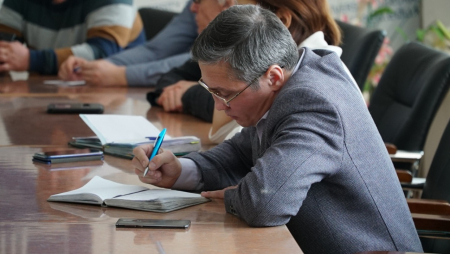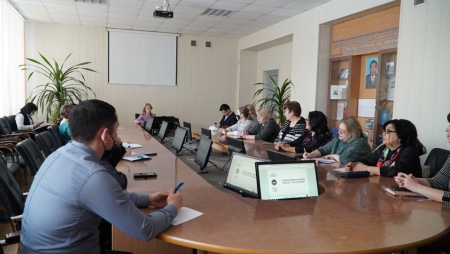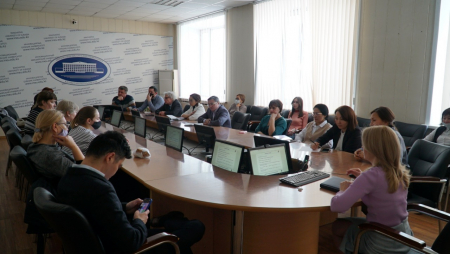The further development of Kazakhstani education was discussed at InEU.
The further development of Kazakhstani education was discussed at InEU.
InEU hosted a meeting with the participation of the teaching staff of the University “On the further development of higher education in the Republic of Kazakhstan”. Recently, this topic was discussed at a meeting of heads of Kazakhstani universities in the Ministry of Education and Science of the Republic of Kazakhstan with the participation of Minister Askhat Aimagambetov.
Rector of InEU Anastassiya Aliyassova informed her colleagues about the main directions of this meeting. She identified the modern
CHALLENGES AND TRENDS:
- higher education is becoming widespread;
- digital institutes of continuing education are being created;
- universities become open to foreign students and teachers;
- joint international platforms are being created;
- universities are being transformed from sources of knowledge into centers of innovation and technological progress;
- a demand for “flexible” skills has increased;
- the role of self-learning, online learning, learning from early childhood and throughout life has increased.
In order to be in demand in the education market, modern Kazakh universities must take into account these trends. Therefore, the MES of the RK has developed a Concept for the development of education until 2025. Here are five of its key areas:
ENSURING ACCESS
New grants for young people will be introduced.
The scholarship to students will double.
By 2023, a new UNT standard will be introduced.
The threshold score for pedagogical sciences will increase to 80 points, “Law” – 75 points.
Introduction of applied Bachelor’s degree in Higher Colleges.
Legislative consolidation of the form of online education.
⠀
EXPANSION OF ACADEMIC INDEPENDENCE OF UNIVERSITIES
The concept of continuing education will be implemented.
Universities will independently determine the form of final certification.
At least 30% of the discipline’s teaching material will be mastered in production.
⠀
FORMATION OF COMPETITIVE UNIVERSITIES
Development of educational programs based on professional standards and Atlas of new professions.
Encouraging employers to participate in the development of the EP.
Functioning of the internal quality assurance system according to ESG standards.
Involvement of international partners in the development of educational programs.
Global educational programs.
Updating the professional standard of the teacher.
Exclusion of programs from the Registry that do not meet modern requirements.
Also at the meeting, state measures were outlined to increase the attractiveness of higher education, the development of university science, and the improvement of the quality assurance system.
According to the authors of the Concept, the following RESULTS will be achieved by 2025:
RESULTS:
- providing the labor market with highly qualified technical personnel;
- expanding access to higher education for school graduates from regions with low quality of knowledge;
- ensuring high-quality selection to universities;
- providing the labor market with practice-oriented personnel;
- implementation of the principle of “lifelong learning”;
- formation of civic and patriotic values and research skills among young people.
InEU Press Service




